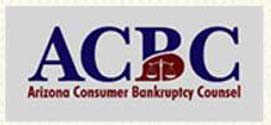
If I file for bankruptcy, will I loose my tax refund?
It depends on the time of the year that the bankruptcy is filed. After a bankruptcy petition is filed, the tax refund is considered property of the bankruptcy estate. This means the trustee has the right to that refund so that he or she can distribute it equally to the unsecured creditors.
If the tax refund consists mainly of excessive withholdings, meaning the Debtor did not claim all the dependents that he or she could have claimed, determining what part of the tax refund belongs to the bankruptcy estate and what part belongs to the Debtor is done by pro-rating the tax refund over one year.
For example, if the Debtor filed the petition in April, the trustee is entitled to four months out of twelve, or 1/3 of the refund. If the petition is filed in June, the trustee is entitled to 1/2 of the refund. On the other hand, if the petition is filed in September, the trustee is entitled to 3/4 of the refund. If the amount of the refund going to the trustee is small, there is a good chance that the trustee will not keep the bankruptcy estate open to collect the refund.
If the amount of the refund going to the trustee is large, the trustee will probably keep the bankruptcy estate open even after the debts are discharged until next year’s tax refund is received. Once the trustee receives the refund, heor she will distribute it to the unsecured creditors and then close out the bankruptcy estate. This is the general procedure in a Chapter 7 bankruptcy.
Another issue that often arises is the earned income tax credit and the child tax credit. Does the earned income tax credit or the child tax credit become part of the bankruptcy estate? Many courts have held that a Debtor has no interest in the earned income tax credit or child tax credit until it is actually received.
Courts in some states such as Alabama or Kentucky hold that the earned income tax credit is actually public assistance and therefore is exempt from the reach of creditors. In these states that consider the earned income tax credit as public assistance, the portion of the tax refund that is the earned income tax credit will not become part of a Debtor’s bankruptcy estate and the trustee will not go after it.
However, in Arizona the earned income tax credit is not considered public assistance. Therefore, the earned income tax credit part of the tax refund will become part of the bankruptcy estate. In Arizona, the Chapter 7 trustee is entitled to take the tax refund that includes the earned income tax credit for teh benefit of the Debtor’s unsecured creditors.
There are ways to minimize the amount of the tax refund going to the bankruptcy estate. If a Debtor generally gets a large tax refund, it is best to consult with a qualified bankruptcy attorney who can assist in pre-bankruptcy planning. The Law Offices of Alice Vacek Aranda PLLC offers a free one half hour consultation.




